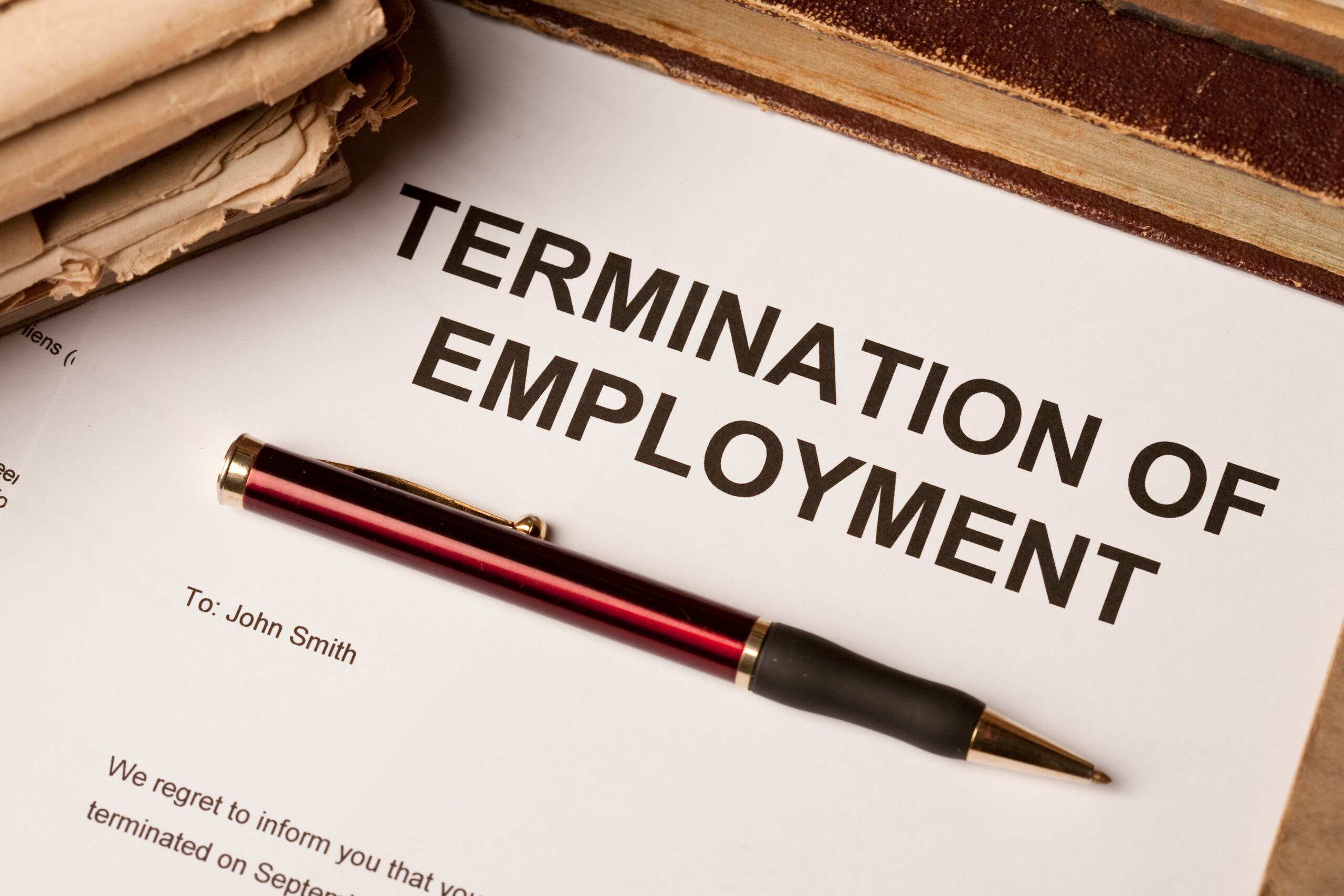Employee termination phase is part and parcel of every business. There can be many good reasons for the breakup of this employee-employer relationship. Federal and state laws govern the termination process and the employers are directly responsible to adhere to getting trapped in the legal battles.
The explanatory manipulation of employee termination laws has given rise to some myths. Employers who tend to fall in line with these myths end up in legal loopholes. Let’s uncover the reality of these myths.
At-Will Employment: Terminating Employee For Any Reason
Now the major misconception concerning At-Will Employment is that the employer can terminate the employee for any reason. In light of federal and state laws, employee termination without any appropriate reasoning can result in a lawsuit from the employee. If the termination is based on the employee’s exercising of their rights as per laws, then it is strictly prohibited by the governmental regulatory bodies.
An employee can engage in a protected activity such as paid vacations or medical leaves. Any dismissal from a job based on the employee’s use of protected rights will be quashed in a court of law. Therefore, the contextual meaning of At-Will Employment must be exercised per the laws and there must be a valid and justifiable explanation from the employer’s end.
At-Will Employment – Recognized In All States
Another misleading myth among employers regarding At-Will Employment is its applicability throughout the USA. However, that is not the case in the real sense. Montana is a state where At-Will Employment is not recognized and practiced. In this particular state, employers have to establish a “good cause” to dismiss the employees.
Employee termination without any good cause in Montana can lead to damning repercussions. Note that the Montana law of “good cause” for the dismissal of an employee is considered for the post-probationary period. The state laws have framed the following conditions which are termed as a good cause for laying off employees:
- When employees fail to perform their duties as per the job description.
- When employees disrupt the business operations of the employers resulting in losses.
- When employees violate the signed company terms and conditions.
Considering any of these reasons, employers can put forth a good cause to terminate employees without getting caught up in court battles.
Final Pay Is Due Next Regular Payday: Not Always
Under the purview of federal law, when an employee resigns or is terminated, his/her final paycheck is rolled over to the very next regular payday. However, this law varies from state to state and it is very indiscriminately implemented. Many states come down hard on employers for paying off the final pay after terminating their employees.
Much to the employees’ aid, many states have ruled out that the employers must pay the terminated employees final pay within 6 days after dismissing them. On the other hand, the final paycheck will be on the next regular payday if the employee resigns.
The nitty-gritty of the final pay varies from state to state. Therefore, employers should check with their local laws and adhere to them in the true letter and spirit.
Final Pay To Be Mailed To Employee
The mode of disbursing the final paycheck is highly misquoted which most people describe via the mail. That is not the most accurate when viewed in light of federal and state laws. In case of involuntary employee termination, the employers are required to pay the final payroll to the employees at the office. This law is the same for most of the states.
Apart from this scenario, if the employees tend to leave voluntarily, they should be given the final pay at the office. When the employees leave without even completing the 72-hour notice, then the paycheck is mailed to them on the next regular payday.
Withholding Pay For Failure To Return Equipment
It’s a common notion that employers are entitled to cut off the final paycheck of employees given that they fail to return the company’s equipment. This is a much-hyped myth since employers are not entitled to deduct the equipment cost from the final paychecks of exempt employees. At any cost, the employers are bound to pay the final pay to the exempt employees.
The rules are slightly different for nonexempt employees. Many states empower employers to deduct the cost of equipment from the final paychecks of the nonexempt employees subject to the following conditions:
- According to FLSA, the amount of paycheck after equipment costs deduction should not be less than the minimum wage.
- The deduction should not curtail the overtime pay of nonexempt employees.
There is a clear differentiation between the recovery of equipment costs from the exempt and nonexempt employees. Therefore, the employers have to proceed per the designated methodologies. Furthermore, the laws governing the recovery costs of equipment are not the same for all states. So, you must check the state laws before proceeding with the pay deduction.
Employees Aren’t Paid Unused Vacation
At the time of employee termination, unused vacation is a hot topic whether it is to be included in the final paycheck or not. Generally, it is believed by many that the unutilized paid-offs are not compensated in the final payroll of the employees. In contrast, state laws dictate otherwise concerning the inclusion of unused vacation days in the paycheck.
The state laws elaborate that the employers must pay the unused vacation days to the resigning or terminated employees in the final paycheck. However, if there was a stipulation within the job contract that employers will not pay the unused vacation at the separation, only then it is allowed to not pay these unutilized paid-offs. For better compliance, employers should check their state laws.
No Need For Written Resignation After Verbal Resignation
Written resignation duly signed by the employee and a counter-signed acceptance letter from the employer is mandatory for the legality of the process. Many organizations are of the view that a written resignation is not required once the employee communicates the resignation verbally.
It is by far the essential practice to have a signed written or electronic resignation of the employee. The reason is that it can be stacked up in the employee records and may be required in case of legal proceedings.
Quitting Employees Are Not Eligible For Unemployment Benefits
Much as real as it sounds, it is inevitably a myth that employees quitting a job are not entitled to unemployment benefits. There is a laid-out procedure for employees to qualify for unemployment benefits. However, the qualification for unemployment benefits can not be ruled out based on resignation.
There could have been extremely unmanageable circumstances leading to the employee quitting the job. Henceforth, everything can be established during the scrutinization process of the unemployment benefits program.
No Need To Keep Records Of Employees Who Have Left
It’s utterly misquoted to delete the records of employees after they have resigned or are terminated from their employment. The federal and state governments have enacted recordkeeping rules that direct employers to keep the records of past employees for a certain period of time.
Employers have to keep their employees’ I-9 forms for a period of three years after the start of employment or one year after termination, whichever comes later. The employer must keep the employee’s information in case of legal proceedings.
Exit Interviews…. Not Necessary
This is a major lag on the part of HR to nullify the importance of exit interviews whenever an employee is set to leave. Exit interviews are a mirror image of the impact of a company’s policies and work environment on the employees. Therefore, employers must conduct constructive exit interviews to understand the viewpoint of the employees.
Consequently, the company can highlight any loopholes in their working practices and can rectify them accordingly. Having said this, exit interviews are a key to continual improvement in an organization.
Employee Termination Myths: Final Thoughts
Employee termination might seem a hassle-free process but may result in legal controversies if not handled per the law. Henceforth, employers have to shun the traditional myths shadowing the termination subject. The best way forward is to check with the federal, state, and local laws in regard to employee termination. That will ensure 100% compliance with the due process and no lawsuit problems.
Frequently Asked Questions (FAQs)
When an employee fails to return company equipment, can you withhold their final payment?
No, it is categorically not allowed to withhold the final payments of employees in case of failure to return equipment. The cost can be deducted for equipment that must not be less than the minimum wage after the deduction.
Is At-Will Employment recognized in every state?
No, At-Will Employment is not recognized in Montana, where the employer has to give a justified and good cause to terminate an employee.
Are employees who quit entitled to unemployment benefits?
Yes, the employees who quit are also entitled to unemployment compensation but the circumstances have to be evaluated.
Is an employee’s final pay mailed to them?
No, the law requires giving the final paycheck to the employee at the workplace/employer’s premises. However, it can be mailed in some cases when the notice period is not completed by the employee.





